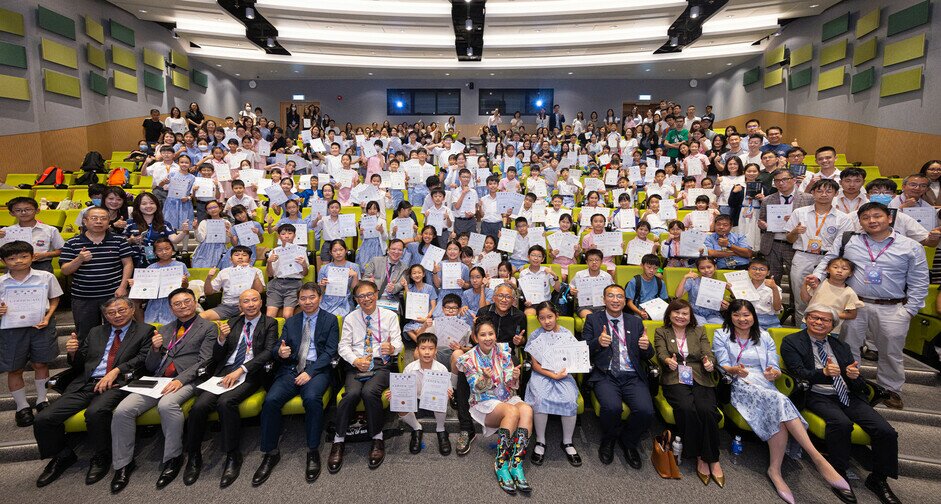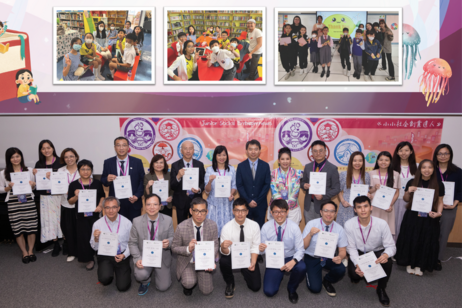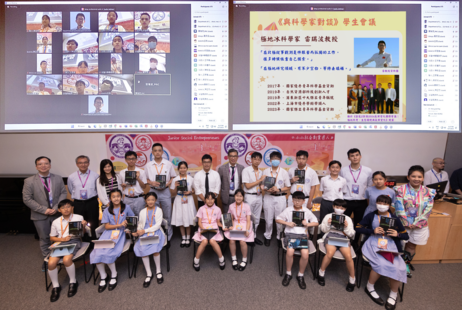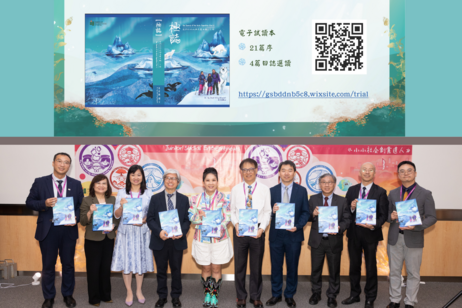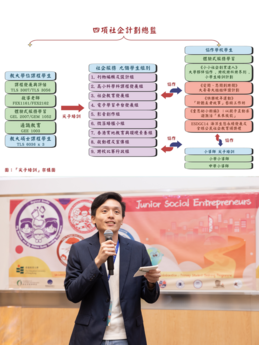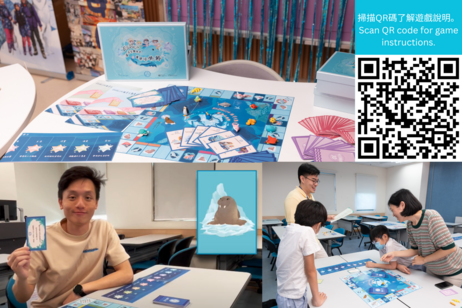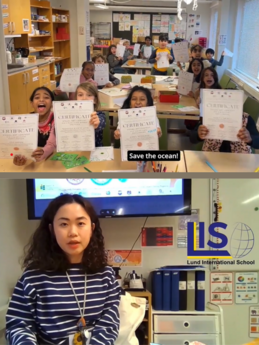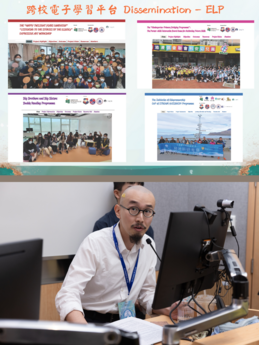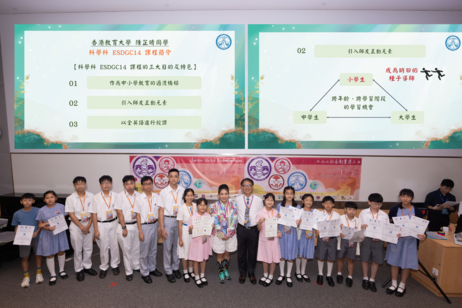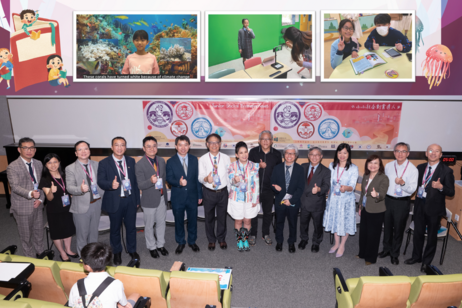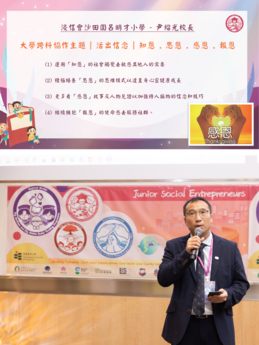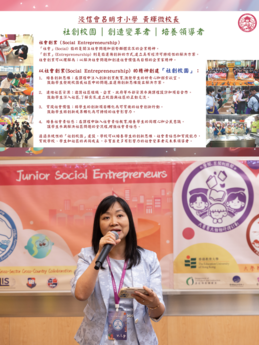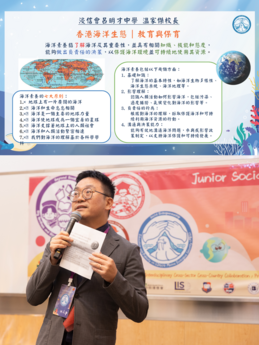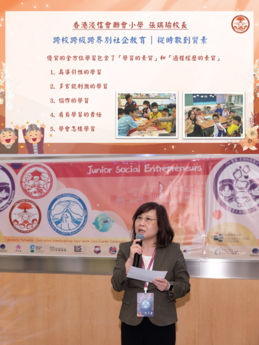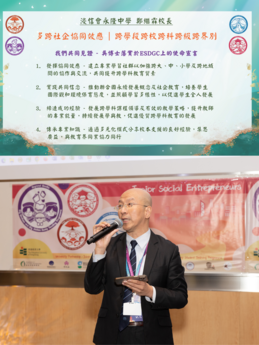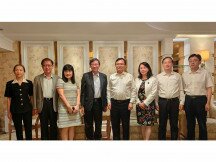EdUHK Launches Senior Primary Science Curriculum Empowering Educators with Advanced Insights from EDB Latest Science Curriculum Framework
The Education University of Hong Kong (EdUHK), Department of Curriculum and Instruction, is proud to announce the development of a pioneering science curriculum for senior primary education. Scheduled for a pilot programme in three primary schools in the 2024/25 academic year, the curriculum adopts diversified learning patterns, including Arctic research expeditions, English Medium Instruction (EMI) science lessons, a cross-sector mentoring programme (involving collaboration among students from university, secondary, and primary schools), and various social service experiences. The initiative hopes to empower primary science teachers to adeptly implement the forthcoming Education Bureau’s science curriculum framework, which is scheduled for a full roll-out in the 2027/28 academic year.
Seven Schools Lead the New Science Curriculum Initiative
Spearheaded by Dr Margaret Ng Cheuk-wing of the Department of Curriculum and Instruction at EdUHK, the curriculum officially entitled 'From Arctic Exploration to Marine Ecological Sustainable Development and Global Citizenship' (also known as the ESDGC14 curriculum), was created with principals and subject heads from five local primary and secondary schools, EdUHK students, and educators from a Swedish international school. Targeting Primary 5 and Primary 6 students in Hong Kong, the curriculum is designed to enrich the existing STEAM (Science, Technology, Engineering, Arts and Mathematics) education framework.
Detailed Curriculum Components
The curriculum is structured into three components. Firstly, the teaching materials consist of a journal incorporating 90 illustrated entries from Arctic explorations to fuse scientific knowledge with real-world exploration and cultural insights, sparking curiosity and enthusiasm among students. Secondly, it features a four-phase series of science lessons conducted in English, covering basic science education, scientific inquiry, laboratory tests and field trips. The series of lessons is designed to broaden students’ scientific understanding and enhance their global perspective. Lastly, the curriculum will engage students in a variety of social service activities to enhance the community’s awareness of the global climate and foster capabilities to manage responses and mental stress during extreme weather events. These activities will be implemented by primary and secondary school students along with EdUHK’s students in the cross-sector mentorship programmes. Through these activities, students can develop a social entrepreneurial spirit, enhancing their skills in observation, communication and coordination.
Expert Insights
Regarding the curriculum’s alignment with global educational standards, Dr Margaret Ng commented, “Our curriculum is strategically designed to meet UNESCO's '2030 Education' goals by leveraging significant findings from China's polar explorations. We aim not only to enhance scientific literacy but also to empower students to develop strategic conservation plans that address pressing global marine ecological challenges, fostering a robust sense of global citizenship.”
Looking forward to a full roll-out of the primary science curriculum by the 2027/28 school year, Dr Ng anticipated the curriculum could inspire educators to create a holistic and integrative educational approach, to facilitate students’ comprehensive development, and equip them for a better transition to secondary education.
About the Senior Primary Science ESDGC14 Curriculum
The programme is poised to make a significant impact, reaching senior primary students, junior secondary students, EdUHK’s students from Biology major and Department of Curriculum and Instruction, and educators across seven schools. This diverse group includes primary school principals, curriculum designers, and subject panel heads across various disciplines such as Chinese, English, STEAM education, and visual arts. Furthermore, the initiative engages secondary school principals and subject panel heads from biology and integrated sciences to guarantee a cohesive educational experience. This comprehensive engagement is strategically designed to elevate educational interactions, boost academic performance, and foster professional development across multiple educational levels.
—End—
